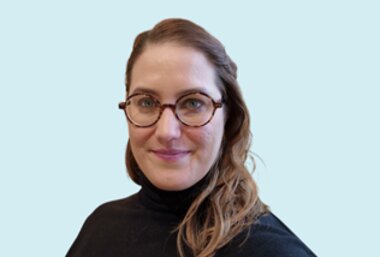5 July 2023
Clinical Specialist Occupational Therapist, Sarah Dzumbira, shares her journey into the profession.
How did you get into occupational therapy and how has your career journey been so far?
I've been a qualified occupational therapist (OT) for 13 years and I really do feel OT is the best job. It's really inspiring to journey alongside patients in some of the hardest moments of their lives and support them by providing person centered occupation specific input.
What we do as OT's can really empower and shape a patient’s life for the better, we see things through a unique lens.
I originally got into OT because my mum (a GP practice nurse) suggested it. She wrangled two shadow days at the local country hospital in rural Australia and I loved it. I always knew I'd be in healthcare, but originally had other aspirations. However, after my first placement I knew this was the career for me. I found it to be a lovely balance of science and evidenced based healthcare, alongside creativity.
I finished university and held roles across mental services in Queensland, Australia for two years including older persons mental health, acute, and medium secure forensic roles. In these roles I gained my passion for wholistic healthcare and the role OT can play in address sensory needs.
I then relocated to New South Wales Health and took on roles in physical health in the community and A&E. After qualifying for almost six years I moved to the UK. I was very fortunate to gain roles locuming in neurology specific roles and I knew that I had found my specialty and that I wanted to remain working in the UK. Since this time I've held roles at Northwick Park on a specialist neurology rotation and in a highly specialised Neuro OT role at the Royal Hospital for Neuro-Disability (Putney).
What inspired you to get into this work?
I have taken a new and exciting role at Guy’s and St Thomas’ NHS Foundation Trust (NHS FT) as a Clinical Specialist OT with the aim of setting up the critical care services and specialist Respiratory services.
Critical care is mostly an emerging role for OT, but I feel we offer immense value in this setting. It's really interesting to observe the interactions of the multi-disciplinary team, some of whom have never worked with an OT but see the impact and value we have with this patient group. One moment which stands out is when an intensivist registrar saw a session where I engaged a patient by facilitating them completing some of their own personal care and grooming. The registrar commented that if they were ever critically ill they would really want an OT to see them.
The Trust offers a strong OT leadership structure as well as professional support and supervision. I'm immensely proud to say I'm an OT who is working at Guy’s and St Thomas’ NHS FT.
What is it like working across a partnership?
At the moment I have four hats professionally - I work across critical care inpatient and critical care follow up clinic, I clinically lead the Lane Fox and Remeo OT teams, and clinically support the OT teams at Royal Brompton Hospital. It’s a very busy role but I love it and the patient groups we support. There is so much good work being done by the OT teams at Lane Fox and Remeo centres and at Royal Brompton Hospital as part of their Specialist/tertiary centre roles.
I'm constantly inspired by the OT teams I work with and the incredible work they do.
I've also had the honour of being part of some clinical academic groups. Being part of this, has inspired me to see what KHP is developing across the Critical Care, Pulmonary, and Cardiac specialties and that there is a thirst for education, innovation, and research. I can't wait to see where this leads for the Partnership and OT.
What would be your one career top tip?
There are three main ones really: be open to different rotations and professional experiences, even if this is not your passion as an OT, you are learning and growing and who knows what opportunities this may open in the future, or who you might meet who inspires you professionally. I consider myself a mosaic as I've taken what I've observed to be the best things from OT's I've worked with and I’ve learnt from across all these roles and services through my career.
Secondly, spend time creating a network of your peers either within the Trust or wider. These might not even be OTs but other Allied Health Professionals. These support networks have been invaluable to me and I thrive on learning and sharing with other OT's. Ask for help, advice, and support, your peers are often very happy to help.
Thirdly Twitter is an amazing professional tool if you use it correctly. Follow other OTs or health professionals and gain an insight into new emerging research, newly published literature, resources or even CPD opportunities. What you learn on Twitter could be endless!
Interested in learning more about King’s Health Partners Cardiovascular? Visit the Institute’s webpages. .





